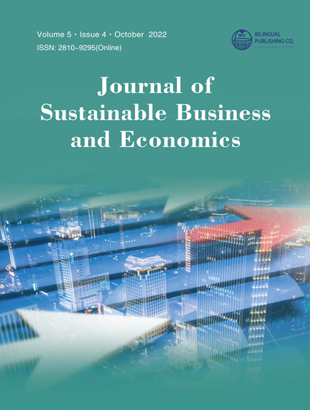-
239
-
187
-
155
-
144
-
141
The Importance of Governance Efficiency in Environmental Policy Research in Energy Shortage Period
DOI:
https://doi.org/10.30564/jsbe.v5i4.25References
[1] Herrmann, M., 2022. The global population will soon reach 8 billion-then what? https://www.un.org/en/un-chronicle/global-population-will-soon-reach-8-billion-then-what.
[2] Reuters, 2022. Draft law shows Germany plans to revise key emissions target for energy sector. https://www.reuters.com/business/energy/draft-law-shows-germany-plans-revise-key-emissions-target-energy-sector-2022-07-05/.
[3] Ainger, J., 2022. EU lawmakers remove last hurdle to label gas, nuclear as green. Bloomberg. https://www.bloomberg.com/news/articles/2022-07-06/eu-lawmakers-remove-last-hurdle-for-gas-nuclear-as-green.
[4] Gough, I., 2015. Climate change and sustainable welfare: the centrality of human needs. Cambridge Journal of Economics. (39), 1191-1214.
[5] Newburger, E., 2022. Schumer-Manchin reconciliation bill has $369 billion to fight climate change — here are the details. CNBC. https://www.cnbc.com/2022/07/27/inflation-reduction-act-climate-change-provisions.html.
[6] Normile, D., 2021. Environmentalists hail China’s vow to stop building coal-fired power plants abroad. Science. https://www.science.org/content/article/environmentalists-hail-china-s-vow-stop-building-coal-fired-power-plants-abroad.
[7] Shan, Y.L., Qu, J.M., Wang, D.P., et al., 2019. Impacts of COVID-19 and fiscal stimuli on global emissions and the Paris Agreement. Nature Climate Change. (11), 200-206.
[8] Hopkins, J., Steinberger, J., Rao, N., et al., 2020. Providing decent living with minimum energy: a global scenario. Global Environmental Change. (65), 102168.
[9] Fanning, A., O’Neill, D., 2019. The wellbeing-consumption paradox: happiness, health, income, and carbon emissions in growing versus non-growing economies. Journal of Cleaner Production. (212), 810-821.
[10] Worland, J., 2022. The Inflation Reduction Act is about to jumpstart U.S. climate policy and change the world. Times. https://time.com/6204582/inflation-reduction-act-climate-change.
[11] Rayasam, S., Koman, P., Axelrad, D., et al., 2022. Toxic Substances Control Act (TSCA) implementation: how the amended law has failed to protect vulnerable populations from toxic chemicals in the United States. Environmental Science and Technology. DOI: https://doi.org/10.1021/acs.est.2c02079
[12] Wang, Zh.Y., Qin, H.Y., Lewis, J., 2021. China’s wind power industry: policy support, technological achievements, and emerging challenges. Energy Policy. (51), 80-88.
[13] Vetter, D., 2022. China built more offshore wind in 2021 than every other country built in 5 years. Forbes. https://www.forbes.com/sites/davidrvetter/2022/01/26/china-built-more-offshore-wind-in-2021-than-every-other-country-built-in-5-years/?sh=2ab91b2a4634.
[14] Ambrose, J., 2021. China leads world’s biggest increase in wind power capacity. The Guardian. https://www.theguardian.com/business/2021/mar/10/china-leads-world-increase-wind-power-capacity-windfarms.
[15] Jacobson, M., Krauland, A., Coughlin, S., et al., 2022. Low-cost solutions to global warming, air pollution, and energy insecurity for 145 countries. Energy and Environmental Science. (15), 3343-3359.
[16] Wu, Y.N., Hu, Y., Xiao, X.L., et al., 2016. Efficiency assessment of wind farms in China using two-stage data envelopment analysis. Energy Conversion and Management. (123), 46-55.
[17] Yang, W.X., Li, L.G., 2018. Efficiency evaluation of industrial waste gas control in China: a study based on data envelopment analysis DEA model. Journal of Cleaner Production. (179), 1-11.
[18] Sueyoshi, T., Yuan, Y., Goto, M., 2017. A literature study for DEA applied to energy and environment. Energy Economics. (62), 104-124.
Downloads
How to Cite
Issue
Article Type
License
Copyright © 2022 Zeyuan Zheng, Shujian Zhang

This is an open access article under the Creative Commons Attribution 4.0 International License.




 Zeyuan Zheng
Zeyuan Zheng


